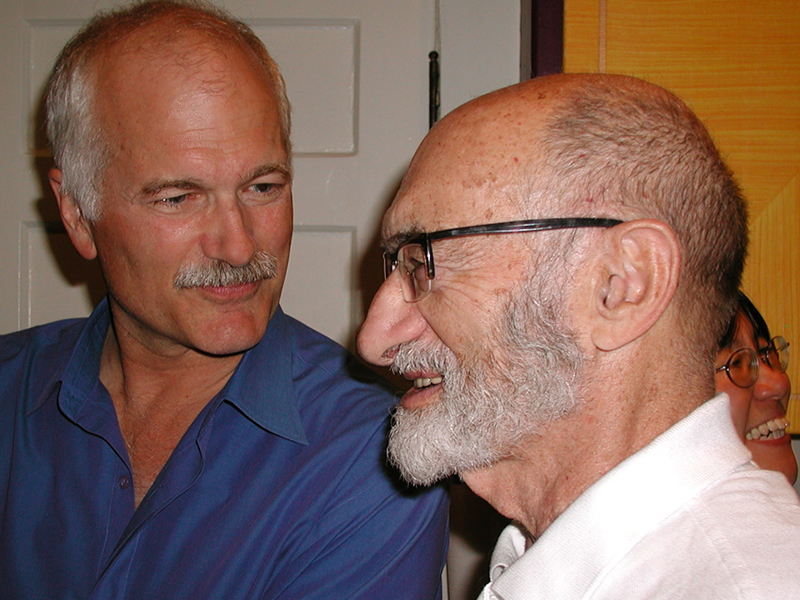In honour of Canada’s 150th birthday, The CJN presents 40 profiles of some of the most prominent Jewish Canadians throughout our history.
Today, the right to an abortion, or a woman’s right to choose, has become a virtual third rail of Canadian politics – a policy issue that parties avoid, out of fear of the public backlash that would otherwise result.
It wasn’t always that way. Back in 1967, when Henry Morgentaler ran a family medical practice in Montreal, abortion was illegal in Canada. Practitioners who performed the notorious “back alley abortion” faced a sentence of life in jail and women who underwent the procedure could also be incarcerated for two years.
Currently, there is no law in Canada preventing abortion and the right to undergo the procedure can be traced back to the advocacy of Henry Morgentaler.
A Holocaust survivor who grew up in Lodz, Poland, Morgentaler became a national figure due to his stubborn refusal to conform with the law of the day,and his willingness to spend time in jail, in pursuance of his principles.
After moving to Canada in 1950, Morgentaler completed his medical studies at the University of Montreal before opening a family practice in 1955. In 1967, when he was serving as president of the Humanist Fellowship of Montreal, Morgentaler made a presentation to Parliament about the dangers faced by women procuring illegal abortions. After being deluged with calls from women seeking to terminate their pregnancies, he opened an abortion clinic in his Montreal office a year later, even though it was illegal at the time.
READ: THE CJN’S SPECIAL COVERAGE OF CANADA’S SESQUICENTENNIAL
In 1969, the federal government amended the long-standing abortion law, permitting it in limited circumstances – in a hospital, after a three-doctor committee determined it was necessary for the health and wellbeing of the mother.
Morgentaler continued to perform abortions at his clinic and was charged on multiple occasions for violating the law. At one point, he spent 10 months in jail.
In 1983, he opened abortion clinics in Toronto and Winnipeg, which led to further charges against medical personnel at both facilities.
Finally, in 1988, after numerous legal battles, the Supreme Court of Canada struck down the abortion law as unconstitutional, leaving Canada without any legal restrictions on the procedure.
In an interview with the Globe and Mail in 2003, Morgentaler referenced his experience during the Holocaust as motivating his work for women. His father, Josef, a leader of the socialist Jewish Labour Bund, was killed by the Nazis in 1939 at a detention camp. He and his brother, Mike, and mother, Golda, lived in the Lodz Gheto until being transported to Auschwitz in August 1944.
‘I knew I could not save my mother, but I could save other mothers.’
“I knew I could not save my mother,” he told the Globe. “But I could save other mothers. It was an unconscious thought. It became almost like a command. If I help women to have babies at a time when they can give love and affection, they will not grow up to be rapists or murderers. They will not build concentration camps.”
Over the years, Morgentaler criss-crossed the country, campaigning for women’s reproductive rights. He opened eight abortion clinics, which sometimes led to confrontations with provincial governments that attempted to close the facilities, or refused to pay for the procedures.
In 2005, the University of Western Ontario granted him an honorary degree, prompting opponents to start a petition that was signed by 12,000 people. In 2008, when he was made a member of the Order of Canada, there were protests, as well.
In 1992, his Toronto clinic was firebombed and he often received death threats.
Morgentaler retired from active practice in 2006, but five clinics bearing his name remain open to this day.
Morgentaler died of heart failure in 2013 at age 90.
